DevOps engineering is a dynamic and rapidly growing field that combines software development and IT operations. DevOps engineers are responsible for streamlining the development process and ensuring software is delivered quickly and reliably. It's a challenging but rewarding career path that requires a strong understanding of both development and operations.
This article covers what DevOps engineering entails, the skills that are needed, the tools used, and where to start in your DevOps journey.
What exactly is DevOps?
DevOps is a set of practices and tools that combines and enhances the ability of the company’s software development (Dev) team and IT operations (Ops) to deliver high-quality and reliable software to their customers at a very high rate. It harnesses the power of collaboration and automation to create a virtually seamless pipeline linking coding, testing, and deployment. The idea of DevOps grew out of the Agile methodology and first gained attention in 2009.
To learn the difference between DevOps and DevSecOps, check out our blog: DevOps vs. DevSecOps: Explaining the Key Differences.
The Need for DevOps
In traditional software development approaches, software development and IT operations teams worked in silos, with little to no collaboration between them. This approach often caused delays, errors, and inefficiencies as the two teams were not aligned in their goals and priorities.
With this approach, manual tasks were prevalent, leading to a higher risk of errors and slower software delivery times. The lack of collaboration and automation made meeting the demands of today's fast-paced business environments impossible. This led to the rise of DevOps.
DevOps helps teams work together seamlessly, automating many manual tasks and reducing the risk of errors. It also enables faster and more frequent software releases, which is crucial in today's fast-paced business environment. Ultimately, DevOps ensures that high-quality software is delivered quickly and reliably, giving organizations a competitive edge.
Skills Required to Become a DevOps Engineer
To become a successful DevOps engineer, one needs to gain a diverse range of skills. These include excellent communication, problem-solving, and critical thinking abilities. Additionally, proficiency in coding and scripting languages, such as Python and Golang, is crucial. A solid understanding of automation tools and deployment frameworks, such as Jenkins, Chef, and Puppet, is also necessary.
Furthermore, DevOps engineers must have an aptitude for continuous integration and delivery, as well as experience working with cloud infrastructure platforms like AWS, Azure, and Google Cloud. Overall, a DevOps engineer must be a jack of all trades with a willingness to learn and adapt to new technologies and processes.
You can learn and get practical experience in all these fields from our DevOps learning path and Cloud learning path.
What Companies Look for When Hiring a DevOps Engineer
Having an understanding of DevOps tools like Docker, GitHub, Kubernetes, Terraform, Ansible, Puppet, etc., is necessary because that is what companies are looking for when hiring a DevOps engineer.
Companies also favor candidates that have practical experience working on real project tasks on real systems. You can get such experience from our KodeKloud Engineer platform. Try it here for free.
Additionally, you can certify your Kubernetes (One of the core components of DevOps) skills. Don’t know where to start your certification journey, check out the blog CKAD vs. CKA vs. CKS. To learn more about the three certifications, check out our CKA, CKAD, and CKS - Frequently Asked Questions blog.
In addition to this, Ops knowledge is also necessary to become good in DevOps. A DevOps engineer not only writes code or automates but also has to know other related aspects too. Below are some of these aspects:
- Scripting and Linux basics
- Knowledge of different cloud providers
- Knowledge of how software development life cycle works (SDLC)
- Familiarity with source control and versioning and tools like GitHub & Bitbucket
- Experience with building tools
- Artifacts management tools like JFrog artifactory & Sonatype
- Infrastructure design and microservices
- Better communication skills
- Automation testing skills
- Understanding about infrastructure as code
- Troubleshooting skills
- Understanding the concepts of CI/CD and tools
- Knowledge of the DevOps pipeline and how it works
- Knowing how systems scale - Horizontal scaling and vertical scaling
- Virtualization concepts
- Understanding of different DevOps success metrics like deployment frequency, lead time to change, change failure rate, time to restore services back, etc
- Containerization concepts and tools like Docker
- Container orchestration and tools like Kubernetes
- Software release cycle and management
Where to start your DevOps journey?
The problem is that companies rarely hire freshers to work as DevOps engineers, but that being said, there is a huge skills gap in the industry. Firms struggle to hire a good DevOps candidate and often fail because of the scarcity of talent.
Below are some resources and courses that can help you on your DevOps journey:
- Read the book ‘The Pheonix Project’
- Take this free DevOps pre-requisite course
- Watch this video by Rackspace that explains the meaning of DevOps in simple English
- Read these interesting answers on Quora by experts on becoming a good DevOps engineer
- Watch and learn side by side with this Docker for beginners full free course by Mumshad (One of the top Udemy instructors)
- Follow these 100 DevOps influencers on Twitter
- Join Developer community forums like dev.to, Hashnode, Dzone, DevOps subreddit, Stackoverflow, DevOps StackExchange, Changelog, etc
DevOps is taking center stage, and as we have mentioned before, it is becoming the epitome of software development. DevOps engineers are some of the highest-paid professionals in the world. It is a good career path, and a proper plan and approach will get you a good job.
At KodeKloud, we have a course that will prepare you for any DevOps Interviews.

Conclusion
In conclusion, DevOps engineering is a vital field that combines software development and IT operations to deliver high-quality and reliable software to customers at a high rate. DevOps engineers require diverse skills, including communication, problem-solving, critical thinking, coding, automation, and cloud infrastructure.
When hiring DevOps engineers, companies look for practical experience in DevOps tools and real project tasks. To start your DevOps journey, you can gain practical experience through our DevOps learning path, Cloud learning path, and KodeKloud Engineer platform.
More on DevOps:
- Introduction to DevOps Through Literature
- Immutable Infrastructure as Code (The Future of Scalable DevOps)
- SRE vs Devops: Understanding The Key Differences
- Introduction to DevOps Tools: From Idea to Execution
- How to Become a DevOps Engineer From Scratch: Your 6-Step Guide
- Why Are DevOps Salaries so High? (Over $130,000 / year)



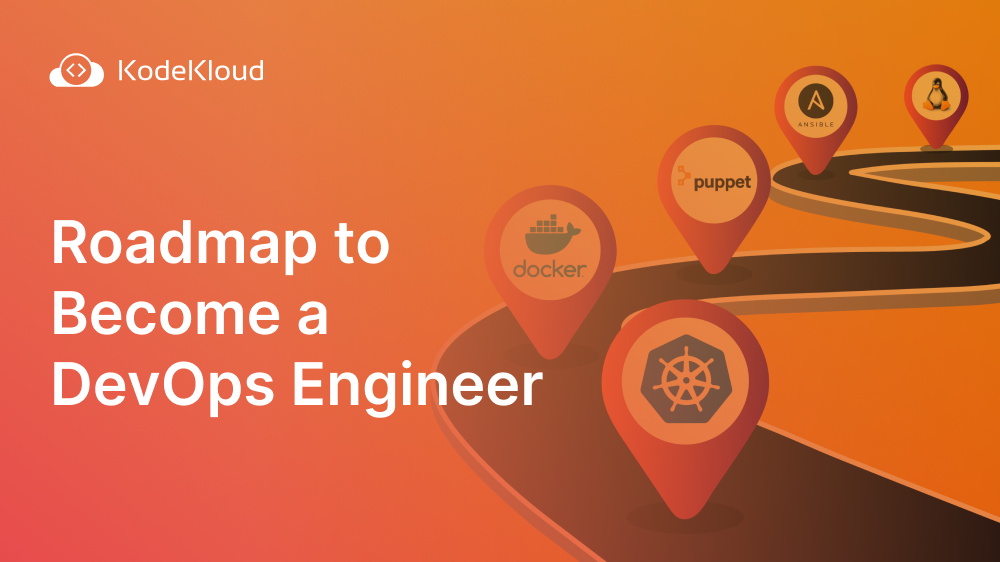

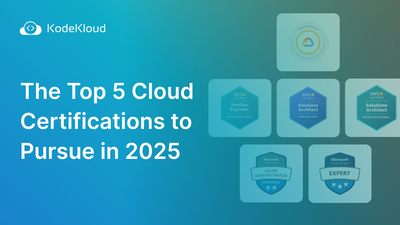

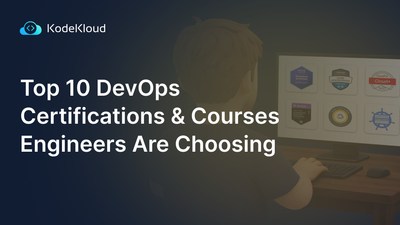

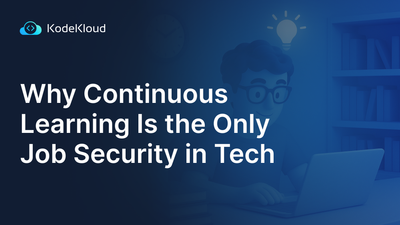

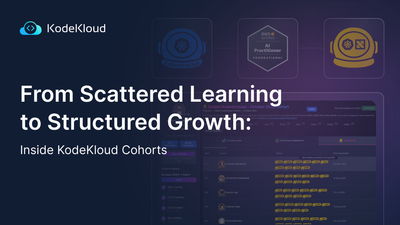
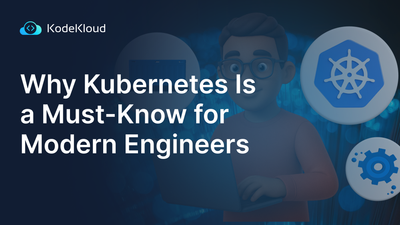

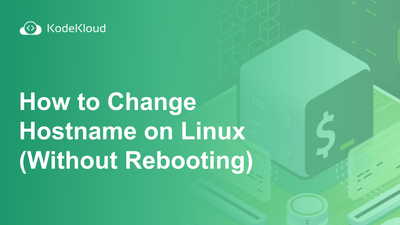


Discussion